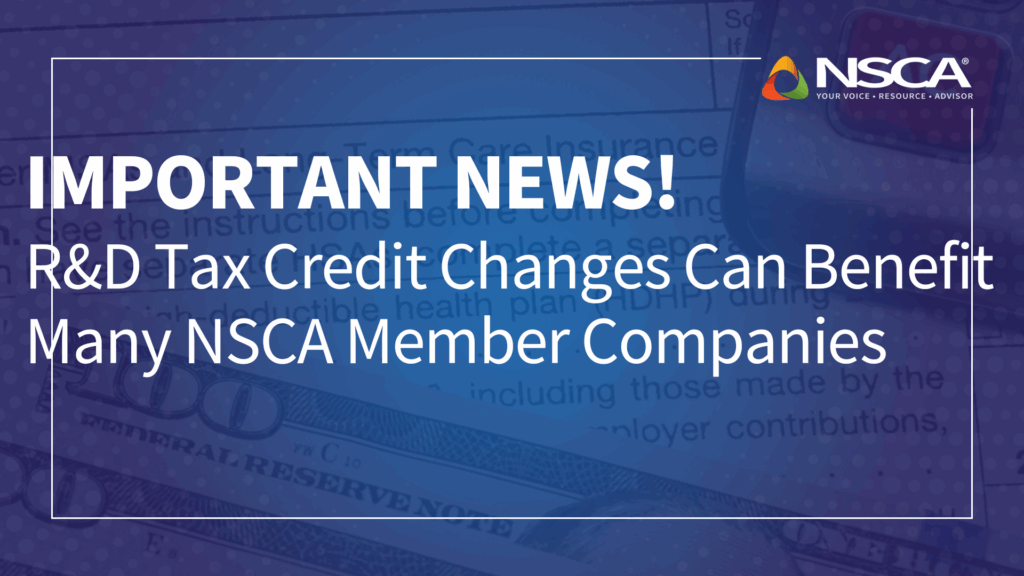
Changes to research and development (R&D) tax credit rules included in President Donald Trump’s Big Beautiful Bill, signed into law on July 4, 2025, have significant impact on many NSCA members and their ability to submit and receive tax-credit benefits.
Since 2022, corporations have been required to amortize and expense their research and development expenses over time. However, the rules under the new law allow “R&D performed in the U.S. to be immediately expensed,” Forbes reports. “Meanwhile, R&D performed by U.S. corporations outside the U.S. will continue to be subject to the amortization rules.”
Related: How R&D Tax Credits Can Be a Lifeline for Companies Battling Tariffs
The change directly impacts companies, including many in the NSCA Community, by allowing the immediate expensing of these costs and yielding significant tax benefits, Forbes reports. “This provision enables corporations to recognize expenses earlier, rather than later, thereby benefiting from the time value of money.”
NSCA members should note: An important portion of this provision is that it will be retroactively implemented as of Dec. 31, 2021.
“This change means that corporations that have been amortizing their R&D over the last three-and-a-half years can now recognize these expenses,” Forbes reports. “For companies with annual gross receipts of less than $31 million, the expensing can occur immediately. All other companies can recognize these expenses over the next two years.”
Breakdown of the Law Circa 2022 vs. the New Rules
Provided by Engineered Tax Services
Section 174 / New 174A – Immediate Deduction for R&D Expenses
Under the 2017 TCJA, research and experimental (R&E) costs had to be amortized over five years, limiting liquidity for startups and innovation-driven companies. That’s now reversed.
What Changed
- Retroactively repeals the amortization rule for tax years beginning after Dec 31, 2021, and before Jan 1, 2026
- Introduces Section 174A:
- Allows immediate deduction of qualified domestic R&E expenses
- Optional amortization remains for foreign R&D
Why It Matters
This is a major win for companies focused on innovation. Startups, manufacturers, and tech firms now have the ability to deduct qualified R&D costs in the year they’re incurred, improving cash flow and reinvestment potential. This is retroactive to Dec. 31, 2024, and confirmed through 2030.
Recommended Steps for NSCA Members
Since many NSCA members can potentially receive significant tax credits, they should contact their tax accountants to understand their options. NSCA Business Accelerator alliantgroup works with many NSCA members to help them understand, submit, and receive tax credit benefits.
To learn more about how to leverage alliantgroup to better understand and take advantage of R&D tax benefits, visit this page on NSCA.org or contact:
Ashley Rodriguez
Industry Partnerships & Associations
–OR–
Mike Abernathy
NSCA













